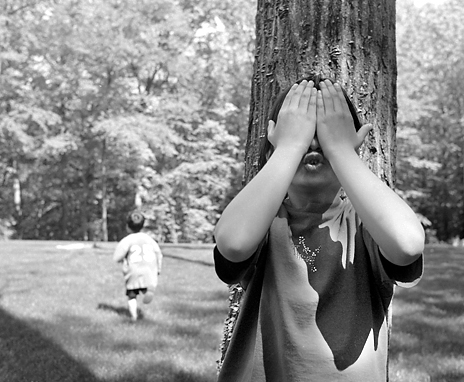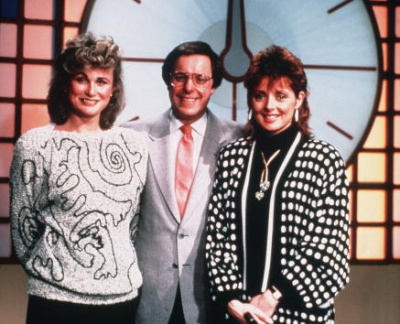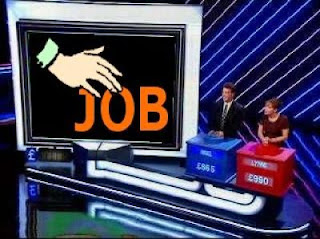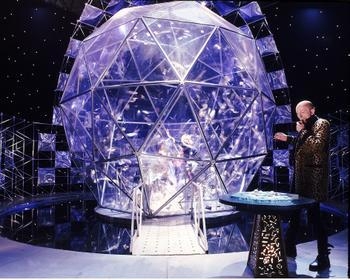"Say, did you enjoy that festival of sport, optimism, national pride and joy? Well, that's over now, but if you enjoyed that maybe you'll like this...? MURDER!!!"
So, going forward and looking at the positive and concentrating on the legacy, here's my blog about life after the Olympics. A lot of plans have been discussed about the future of the Olympic park. The stadium can be sold to a football team, despite the running track that put teams off (my solution would be to have football and running on at different times, but what do I know?), the top of the stadium can come off, the aquatics centre will be opened up to the public, a lot of the buildings can be taken down and shipped to Brazil for their remake of the Olympics and the athletes will be sold off to chat shows (Gold medalists to Jonathan Ross, Silver to Graham Norton, Bronze to Alan Carr's Chatty Man, non-medalists to The One Show). All good, but there's one area they've missed. The BBC set-up 24 new Olympics channels. My usual pessimistic, angry blog writing style would worry they will show 24 different repeats of Murder, She Wrote to choose from. But in my post-Olympics optimistic position, I have great ideas for the BBC's new sports channels. As I felt a bit left out by all you sports fans, here are some games I would put on those channels now the Olympics is over. What do you think? What would you put on instead?
BBC Olympics 1: Hide and Seek
An overlooked classic of British sport.
The rules: one person is elected to be the seeker (using the Olympic standard Ip-Dip-Doo deciding method) the others hide (and immediately feel the urge to pee when they get into their spot). The seeker counts to 100 (using the Olympic standard 1 Mississippi, 2 Mississippi counting method) and then goes in search of the others. Once found, hiders can choose whether to help the "seeker" find the others or follow them around being annoying the rest of the game. The first hider to be found becomes the seeker next time around.
How it works in the Olympics: The Olympics is sport on a bigger, grander scale than anything else. Players can hide anywhere in London. Gold is awarded to the person who stays in place the longest. Bonus points are scored for any successful "desperate dashes" to a new hiding place.
BBC Olympics 2: International Kiss Chase
Based on the misguided belief of children and gays, that being kissed by a girl is the worst thing that can happen, this sport is a keep-fit celibacy classic on the primary school playgrounds of Great Britain.
The Rules: Athletes of each gender chase each other attempting to embarrassingly kiss them in front of their friends and teachers while not being kissed themselves.
How It Works In The Olympics: Well, everything I've read suggests that the Olympic village is a great orgy of the fittest people in the world anyway, so why not capitalise on that and make it into a sport? The only draw backs are that after primary school being chased by a girl is less of a threat to a man and being chased by a man is more of a threat to a lady. Also cooties.
BBC Olympics 3: MarioKart
There's a notable lack of motor sports in the Olympics, but Italy's finest have invented a unique, explosive and slippery twist on the sport of motor-racing.
The Rules: There are 8 cups, consisting of 32 courses with varying degrees of difficulty, gravity and physics in general. It's a more interesting sport than F1 because of it's inclusion of variations in terrain. Tracks are built on ice, in jungles, on beaches, in factories, in castles, in a shopping centre, in space and on some haunted planks of wood to name but a few. Drivers can also pick up boxes containing bombs, turtle shells (someone check this with the animal rights people) that can be thrown at opponents, banana skins that people slip on, speed boosts and fake boxes to blow up your competitors.
How It Works In The Olympics: Over two weeks, we were constantly being told how magical the Olympics is, well only this sport will prove it. Prior to the 90s, there were strict rules that Olympic participants had to be amateurs, that was part of the Olympic spirit! And the principle players in this sport all hold down other jobs, plumbing mainly, but also a princess and a toad take part.
BBC Olympics 4: The Intros Round
The closing ceremony of the 2012 London Olympics was a triumph, celebrating all that's best about British music from the last 50 years...and Elbow too, but it seemed a bit odd as there wasn't much music involved in the sporting contest itself. This is my solution.
The Rules: Each country selects a team made up of a c-list musician who wont be famous in three years time, and a c-list presenter who hasn't been famous for three years (Team GB is: Dianna Vickers and Les Dennis). The barely famous singer performs only the introduction of the song and their presenter team mate has to guess the title of the song from the performance. In the event that the competing nation doesn't get it, the question is passed over to Phil's team.
How It Works In The Olympics: Countries perform songs famous in their own country to even the playing field, however Bill Bailey is allowed to distract the presenter by being weird while performing, while Mark Lamar or Simon Amstell will distract the singer by being facetious or highly rude to and/or about them. Each time a team gets the answer wrong and it is passed over to Phil, that team is out of the contest and the last remaining team takes gold. If, at the end of the Olympic fortnight there is a tie:
BBC Olympics 5: Paintball
By the way, that image may look sexy, but she is gonna be covered in tiny round bruises the next day...avoid commitment and be gone by the morning is all I'm saying.
The Rules: Shoot paint at everyone else. Avoid being hit yourself. Take it too seriously. Assume the safety briefing is 90% exaggerated and made up and nobody has actually died from getting paint on the visor, but go along with it because they call themselves "marshals" or "sheriffs" so probably know what they're talking about.
How It Works In The Olympics: England is known for it's idyllic little villages. How hard can it be to evacuate one of those? 2 weeks. 1 village. 4 people to a national team. Some guns. Only supplies found in the village to survive. All out war! Last clean man takes gold. First competitor hit has to do the inevitable cleaning.
BBC Olympics 6: Countdown
Countdown is a traditional British game dating all the way back to the dark ages of the 1980s, as the above picture proves. It's like a triathlon that tests competitors skills with letters, numbers and sitting through Gyles Brandweth's anecdotes.
The Rules: Each nation picks 9 letters, then has 30 seconds to make them into a word. Points are awarded for how long the word is. Bonus points are given for rude words. While extra bonus points are given if you manage to make a rude word come out naturally just by choosing the letters (see below), then some maths.
How It Works In The Olympics: It is hoped that the Olympics will encourage children and young people to participate more in sport and Countdown is tailor made for this. We've all walked past the living room and gone "Countdown sucks.....but wait I have a 6 letter word and if I put the E and R on the end..." and then you're hooked. It's harder to escape than a crack addiction but lasts only 45mins. (Caution, be warned against illegal street Countdown tournaments, these can be dangerous)
BBC Olympics 7: Conveyor Belt
Otherwise known as the last round of The Generation Game.
The Rules: Participants are shown a selection of objects and then have 30 seconds to remember all of them. They win whatever they remember. If they get more than 20 objects, they win a holiday. Teams are required to cheer for the cuddly toy.
How It Works In The Olympics: One of the items on each conveyor belt is a gold medal, in order to win gold, all they have to do is remember it. If Brucie is unavailable, Jim Davidson has some cracking jokes about the foreign teams.
BBC Olympics 8: Musical Chairs
A game traditionally played at children's parties. The above picture is taken from the longest ever game of Musical Chairs, it too started at a children's party.
The Rules: A song (traditionally, an annoying cheesy song, ideally S Club or similar) is played. The participants walk about a bit, then the music is stopped and everyone has to sit down. Each round one seat is removed. The winner is whoever gets the last seat.
How It Works In The Olympics: Scandal struck the opening events of the London 2012 Olympics as newspapers reported on vast numbers of empty seats in the stadium. This would solve that problem by slowly removing those seats at the start of the event.
BBC Olympics 9: Just A Minute
It's on Radio 4, what could be more British. (Oh shut up BBC3. "The Proms are still on you know!" Yeah, do they have the Spice Girls or Mr Bean? No? Well piss off.)
The Rules: Each player has to speak for 60 seconds on a given subject without hesitation, repetition or deviation.
How It Would Work In The Olympics: As with all word games I would suggest for the Olympics, it is made more interesting by having 108 languages spoken at the Olympics. Gold medals go to anyone who can score more points than Paul Merton.
BBC Olympics 10: Pointless
Basically Family Fortunes in reverse, this has become a guilty pleasure of mine that shits all over it's predecessor The Weakest Link by being, if anything too, nice and shits all over Eggheads by not featuring CJ.
The Rules: "Remember this is Pointless so we're looking for the answer the least of our 100 people said." If you do not remember this, fear not, Alexander Armstrong will remind you before, during and after every question.
How It Would Work In The Olympics: In the first competition a bronze medal is up for grabs, but if nobody wins at the end of the episode it rolls over to be a bronze medal and £25. It takes a long time to get a gold. Richard will learn statistics for all the players from all over the world, which will make him very excited. Any country tipped by Richard to win is banned from winning a Gold medal. They may win nothing more than a bronze and must not get to the head-to-head round.
BBC Olympics 11: Knock Down Ginger
Another popular sport among British children that dates all the way back to the past. Known by many other names including ding-dong-dash and knock-a-door-run which may be a more straightforward title, but it's not what it was called by us growing up in Hertfordshire so therefore it's wrong.
The Rules: The rules of Knock Down Ginger (which we will not call Knock-A-Door-Run) are to knock on a door and run.
How It Works In The Olympics: There's an Olympic village right? A whole lot of doors and it's hella difficult to run away from the people who live there. 1 point is scored for every door you successfully run away from (NB. participants must be close enough to see the door open when it does), 2 points are added for the second time someone opens the same door (so 3 points in total), 3 points are scored (6 in total) for the third time and so on...a bonus point is scored for interrupting someone's dinner.
It boils down to a game of laughing at people for opening a door that someone has just knocked on, the fools.
BBC Olympics 12: British Bull Dog
As the name British Bulldog implies, this is the national sport of Great Britain.
The Rules: At each end of the pitch is a safe zone. Participants stand in the safe zone except for one (chosen by the Ip-dip-do, the cat has got the flu method) who stands in the middle. The participants then run across the pitch to the other safe zone while the person in the middle tries to wrestle them to the ground and generally beat the shit out of them. They are now on the "bulldog"'s team and must try and bring others to the ground.
How It Works In The Olympics: It works anywhere. It's basically just a fight but with rules, like boxing or Jeremy Kyle.
BBC Olympics 13: Catchphrase
"Name an Olympic sport..." "Catchphrase!" "Ah, it's good but it's not right."
The Rules: Say what you see, see what you say.
How It Would Work In The Olympics: It probably wouldn't, every country has their own little sayings, it would be near impossible, but I wanted an excuse to watch this clip again. Who wouldn't?
BBC Olympics 14: Pokemon
Everything so far has been preamble to the greatest, game ever invented in any field with the most rock and roll theme tune there has ever been.
The Rules: Competitors, at the age of 10, travel the length and breadth of the country, through woods and caves and cycle tracks, to towns and cities training and capturing small animals en route. In 8 cities they must battle gym leaders and when their team is strong enough they take on the Pokemon league.
 How It Works In The Olympics: The Pokemon league even has it's own flame which is carried in relays around the country, in one episode of the TV series President Goodshow (who ironically never wanted to go into showbiz) allows Ash Ketchum to carry the torch which is lit from the fire of legendary Pokemon, Moltres. Like the Olympic Torch this lights a cauldron at the Pokemon Stadium. Sadly even the animators of the several hundred new Poke-creatures couldn't come up with a cauldron cooler than Danny Boyle's but that animation team also designed Officer Jenny who accompanies the relay on her bike so you'll hear no complaints from me.
How It Works In The Olympics: The Pokemon league even has it's own flame which is carried in relays around the country, in one episode of the TV series President Goodshow (who ironically never wanted to go into showbiz) allows Ash Ketchum to carry the torch which is lit from the fire of legendary Pokemon, Moltres. Like the Olympic Torch this lights a cauldron at the Pokemon Stadium. Sadly even the animators of the several hundred new Poke-creatures couldn't come up with a cauldron cooler than Danny Boyle's but that animation team also designed Officer Jenny who accompanies the relay on her bike so you'll hear no complaints from me.
There are three tiers of Pokemon gaming at the Olympics. Red/Blue (for the purists). Yellow (for those who love a bit of cuteness). Gold/Silver (because of their Olympic colour scheme). Points are awarded for completing the Pokemon league without needing to visit the Pokemon Centre to heal your Pokemon. I don't want to diss Nurse Joy, but I don't like her. The whole "We have healed your Pokemon back to perfect health. We hope to see you again." is polite but frankly a terrible message for a nurse. Bonus points are gained for Pokemon Choice, anyone not choosing the fire Pokemon to start will be thought of as a fool (except competitors in the Women's Gold/Silver contest where Chikorita is acceptable, because it is so damn cute). Zubat tolerance will also be rewarded with bonus points, anyone making it through a cave without swearing or throwing the Gameboy gets a point. Having a balanced team of Pokemon types and not just the first 6 you caught is rare enough to get a point, and having them all equally well trained instead of "Charizard Level 80. Caterpie Level 3. Weedle Level 5. Pidgey Level 12 etc" is also encouraged. Capturing Mewtwo is rewarded handsomely. But only completing the Pokemon league is medal worthy. People playing Pokemon yellow...actually don't worry, you'll still be trying to beat Brock with an electric-type Pokemon long after the closing ceremony.
By the way, if you're wondering why I didn't include any Pokemon games after Gold/Silver it's because, I was fine with there being more than 150 types of Pokemon - the very name Mewtwo suggests there's a mew out there waiting to be discovered - and Pokemon 151-250 introduced some great new Pokemon. But after that they lost it a bit. They ran out of ideas and just started drawing beards onto their previous designs. Anyway, I'm getting a bit distracted, here is some Pokemon related humour and then let's move on to my last sport.
BBC Olympics 15: The Final Game
As the closing ceremony draws near, each Gold medal won by a team gets their nation 5 seconds in the Crystal Dome. Where they attempt to catch as many little gold pieces of paper as they can. If they have over 100, they get to rule their country for the rest of the next four years.
So those are my suggestions for the BBCs Olympic channels, post-games, there are 9 channels left unaccounted for. What do you think should be on them?
(Please note: I did consider "Sleeping Lions" but not only is not much of a spectator sport, it was found that the North Korean team were cheating...well sort of. It was more their government's doing than theirs)














